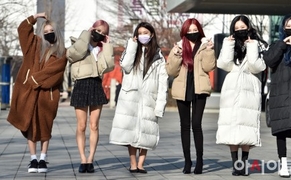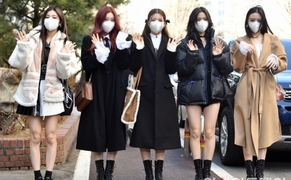 Source: Pixabay Source: Pixabay |
AsiaToday reporter Goh Jin-ah - The match between Go master Lee Se-dol and Google DeepMind's artificial intelligence (AI) program AlphaGo. A certain international programming contest is called The AI Challenge. That's right. One of the hottest topics in the world for the Millennial Generation now is the battle between machines and humans.
Who will rule the world? Will AI someday dominate humans?
DeepMind CEO Demis Hassabis said that humans are the ones who created an artificial intelligence. He emphasized that he puts more weight on human's creativity and that human values will be more dignified in the future. However, it seems just meaningless to the Millennials, or the young generation in their 20s and 30s. What they really need is not the future of humanity, but rather their present.
Many young people around the world are suffering from the same problem. Not being able to live a perfectly normal life by getting a job, earning money, and buying homes. That goes the same for Korean youth.
Two young Koreans accepted our interview. What are their views of their present?
A: The most urgent thing was getting a job when I came back to Korea. It's not affecting now, obviously, but the process of preparing for employment had a negative impact on dating, friendship, and even family relations that are important factors of my life. I have a job now, but it was true when I was looking for a job.
It's because there is keen competition. You need to get a certificate, study for high English scores and take a general knowledge test as well. You have to prepare for job interviews when you join a study group. Besides, it's necessary to attend English language academy for TOEIC Speaking Test.
B: Same here. There is nobody in Korea who is not desperate for a job. Since economic power is the first priority in Korea, if you live hand to mouth, it simply means you are an incompetent person. People think that you have given up everything although you have not.
A : I came back from Canada in December 2014. My first job was working in a hotel. Although it wasn't what I really wanted to do, I had to get a job. But once I got the job, I regretted it and quit it soon.
B : I've stayed in the United States for a year. The original purpose was to try living abroad before getting 30. But I didn't have much money, so I started doing part-time jobs. By then, I had to do a job that required physical labor at the LA Airport.
'A' started doing part-time jobs during high school and university when he lived in Canada for 7 years. Now he has a job in Korea. 'B' grew up in Korea, flew to the US and came back to Korea after a year. He has been working for a company for 10 years now in Korea.
What they shared is about their life in Korea, abroad, employment and their present life. This interview may be subjective, and it should not be generalized. In some ways, young people around the world might be suffering from the same problem, but the depth of pain might be different. You cannot express the difference numerically. Perhaps, whether you agree or disagree with the interview may depend on your personal life and relations.
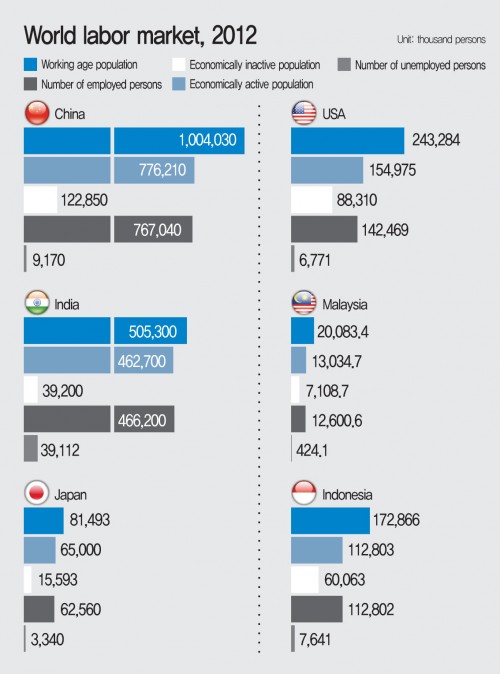 |
First, let's take a look at the most important factor, income.
According to the Luxembourg Income Study (LIS) database, incomes of South Korean households headed by those in their 20s and 30s fell last year for the first time amid rising youth unemployment rate and soaring house prices. The same goes for young Western people in their 20s. Their income was much less than the previous generation. The Guardian said there is an unprecedented inequality between generations.
Angel Gurría, secretary general of the Organization for Economic Cooperation and Development (OECD), warned, "Young people were hit hard by the Great Recession in 2008, and their labor market situation has improved only little since. This is the problem we must address now urgently. Kicking it down the road will hurt our children and society as a whole."
A: I went to Canada when I was 11th grade, and came back in 2014. Counting out the period in the army, I had done just part-time jobs for 7 years. I came to Korea because it was not easy to get a job in Canada. I lived in the region where most of the companies were involved in the oil industry. It's the richest region in Canada. By the time I graduated, however, small companies went bankrupt because of the oil crisis.
Even large companies cut down thousands of people every quarter. It was tough for a foreign graduate. I sent in resumes, but it wasn't easy. They didn't call me. Things changed dramatically, and I decided to return to Korea.
In Canada, I worked in a café, Japanese restaurant, and fast food restaurant, and made $10 an hour. The prices were high, but the condition was better than here. Also, Koreans had to work more under Korean owner. In that case, you get less money, you know.
B: It's the same in the US. I went to the US with L-1 visa, but I got paid hourly, so it wasn't different from a part-time job. The prices were not that high considering the hourly wage.
I got $12 an hour at the airport. You got 1.5 times when you did overtime work or worked on holidays, so I earned at least 2 million won (approx. USD $2,000). I was able to pay rent, eat, and even enjoy cultural life with it. It's quite satisfactory unless you have a specific desire to have a particular job.
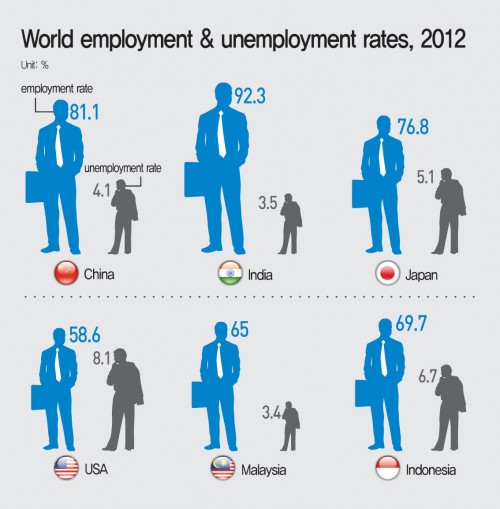 |
You could live an ordinary life abroad with reduced income, due to relatively lower prices. The interviewees' hourly wage of $10-12 per hour was much higher than minimum wage in Korea. Still, it's tough to live in Korea with only part-time work.
As it can be seen from the layoffs in Canada, a global recession income involves income losses, and impacts on home purchase. In Korea, it's highly likely that ordinary wage earners cannot buy a home even after working for more than 10 years. Things are pretty much the same abroad.
KB Institute of Finance recently released a report entitled "The US Millennial Generation and Housing Market Entry Possibility", and revealed that 36% of the Millennial generation, or the American version of Give-up generation, were possessing their own house while only 18% of Korean young people in their 30s were owning a house.
In 2014, nearly 36% of US households under 35 years of age owned a house, down 7% from the 43% of their same-aged counterparts in 2005. This is due to rising student loan and declining employment.
20% of the Millennials lived in their parents' home. 40% of Millennials who live in their parents' home appears to be driven by loan repayment, unemployment, college enrollment, and more. Around 61% of the Millennials lived in a rental house.
Things are worse in Korea. According to the data by the National Statistical Office in 2014, people in their 30s accounted for just 18% of apartment owners in Korea.
However, the worse problem is that there are just too many young people around the world.
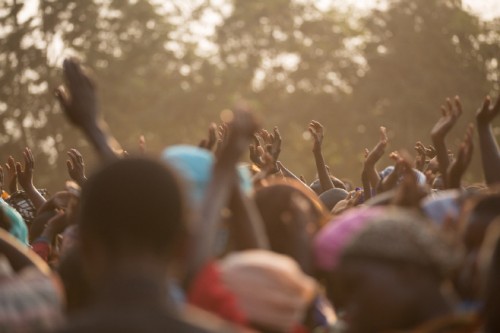 Source: Pixabay Source: Pixabay |
In the recent article in The New York Times entitled, "The World Has a Problem: Too Many Young People", the newspaper said, "At no point in recorded history has our world been so demographically lopsided, with old people concentrated in rich countries and the young in not-so-rich countries."
The newspaper warned, "It's the youth bulge that stands to put great pressure on the global economy, sow political unrest, spur mass migration and have profound consequences for everything from marriage to the growth of cities."
According to the UN Population Fund (UNFPA), people between the ages 10 and 24 represent over a quarter of the world population, and most of them live in developing countries.
In India, some one million young people turn 18 - coming of age, looking for work, and registering to vote. Of course, today's young people are given more educational opportunities than their parents; and they are more connected to the world than any generation before them, which makes them more ambitious. However, many of them are in no position to land a decent job at home.
International Labour Organization (ILO) said that two out of every five young persons of working age are either unemployed or working jobs that don't pay enough to escape poverty. Of course, young people in developing countries have more jobs, but most of them are temporary and low-paid.
The same goes for the developed countries. Europe's youth unemployment is 25%. In the United States, 17% of young people aged between 16-29 are either not going to school or jobless. But do people enjoy more comfortable and leisurely life-style in developed countries?
A: Korea's lifestyle is so fast-paced and competitive. On the other hand, things are more peaceful in Canada, and people of my age puts emphasis on harmonious balance of things. They focus on the balance of life such as love, family, and career. But here in Korea, job is the top priority.
There are advantages and disadvantages. The advantage of living in Canada is that you are basically secured to have a high salary and excellent welfare. You only work 8 hours before you go home. Your lifestyle is more leisurely.
However, the disadvantage is that you could fall behind. You don't improve yourself. Of course, it depends on you. When I ask my friends what they are going to do after graduation, the answer is the same. "I will go to some oil company." This is definitely not the way of self-development.
B: Life in Korea operates at a faster pace than it does in Canada. But talking about money, which is necessary for living, isn't it the same in other countries?
It's just that Koreans tend to think that they should enjoy a comfortable life when they get old, while most people in other countries don't.
In the future, the Millennial generation will lead consumption and politics, and change everything. It's obvious. The US is experiencing a political revolution led by Millennials, the children of Baby Boomers, ahead of the US presidential election. Of course, some media outlets warn that they should not treat electoral politics as 'Hollywood blockbusters'.
The same goes for Koreans. The younger generation, who will lead the politics, economy, society, and culture. should seek changes in Korea. They are responsible to design their own story based on their tough life.
A: In Korea, people make efforts to not fall behind. They say life is tough and competitive, but they quietly work harder.
For now, I'm pretty satisfied with what I'm doing now. Struggling, trying things, and experiencing failures.
I feel lucky to have a job at my age considering my career. My biggest goal for now is becoming an expert in my field.
B: My current life suits me better. It really does. If I wanted to stay in the US, I would have done anything to change my visa. But I didn't. Maybe I wanted my life to be more dynamic. I think it's better for me to be in a fast-paced environment when I can make my best effort to improve my quality of life.
A: I prefer living in Korea now. Although there is the give-up generation, you are able to experience hardships through this current life. In the long term, I think your life would be quite different here compared to the life in Canada when you are over 40 or 50. I mean, there would be more personal development.
Money and career are important, but the most important thing is self development. Because it's important to enhance self-development in the competitive society. The environment is so important, because it wouldn't provoke you to enhance self-development if it was too slow and quiet.
B: I like the word 'self-development'. I'm not sure whether self-development refers to increasing consciousness or building wealth.
But looking at my life so far, I think the concept of self-development often changes as you get older. I'm enhancing personal development by adapting to a new career and checking whether I'm the right person for this career.
A: Practically speaking, it's not easy to accomplish everything. If that's true, it's better to give up things you cannot accomplish, and focus on things that improve your life quality and make you more satisfied.
I want to tell young people it's better to find the path that's right for them, rather than focusing on improving your test scores like others. Am I being too optimistic?
B: I think young generation can do whatever they want. It's their greatest strength, although they are not aware of it.
Do you feel like you have made failure now? Looking back 10 years later, it could be just a passing moment of your life that you might not even remember. It seems like a big deal now, but later it could just a tiny small thing.
I thought it's cliché to say, 'Do what you want so you don't regret later.' But it is true.
Most Read
-
1
-
2
-
3
-
4
-
5
-
6
-
7



















